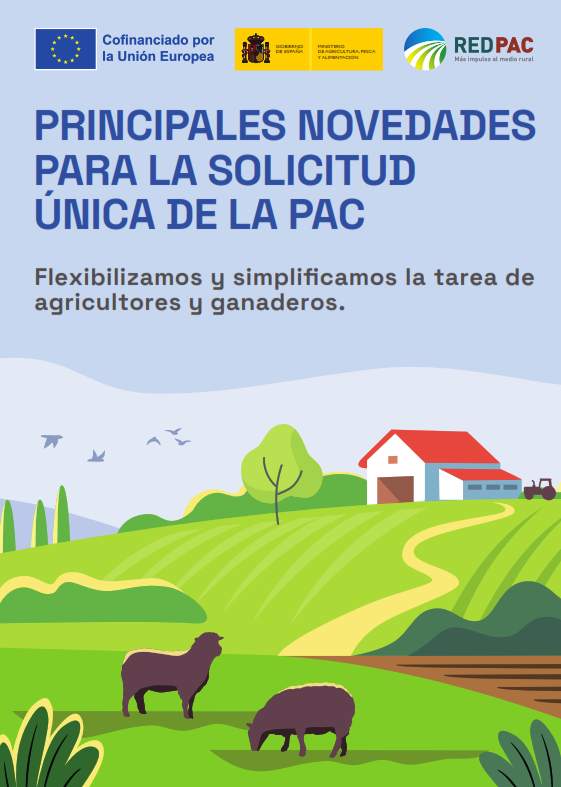Related documentation
-
The Good Agricultural and Environmental Practices (GAPs) that farmers must comply with in order to fully receive direct CAP aid, area payments, livestock charges, and certain POSEI program aid have been simplified and made more flexible. Thus, starting with the 2025 Single Application (and in some cases as early as the 2024 Single Application), a series of changes are included in the following GAPs, which are classified according to the environmental objective to be achieved.
-
Support for the wine sector in the latest CAP reform is provided through the Wine Sector Intervention (ISV 2024-2027), which replaces the current Support Program for the Spanish Wine Sector (PASVE 2019-2023). The latest developments in the ISV within the framework of the CAP Strategic Plan are presented below in this information leaflet.
-
This brochure explains that the CAP Network is the meeting point that connects all individuals and entities related to the rural environment and agricultural activity, with the aim of disseminating and ensuring compliance with the PEPAC objectives and facilitating their implementation throughout the country. Organizations, administrations, advisors, researchers, and other innovation agents will continue to collaborate to enhance knowledge transfer and cooperation.
-
This video explains that livestock farming in Spain is subject to increasingly unified regulations in line with European guidelines. It also helps us understand the rationale behind livestock management regulations, which aim to encompass all the requirements for livestock professionals, facilitate their work, increase efficiency, and ensure sustainability. They have a comprehensive approach that promotes food quality and safety, reduces environmental impact, and enhances animal welfare.
-
This video discusses Spain's current "Vineyard Plantation Authorization System," which guarantees sustainable production for the region and high-quality products. This model was implemented in January 2016 and will remain in effect until 2045. The system operates for both initial plantings and replantings, and involves a series of specific timelines and procedures. Authorizations for new plantings must be requested between January 15th and the end of February each year.
-
This video explains that the CAP Network, a platform of the Ministry of Agriculture, Fisheries and Food, is part of the system for monitoring compliance with the measures of the CAP Strategic Plan (PEPAC) 2023-2027. The new PEPAC is geared toward achieving concrete results related to innovation, knowledge, and the digitalization of rural areas, and includes numerous new features in terms of support, objectives, and measures.
-
This video explains that the PAC Network is the meeting point that connects all individuals and entities related to the rural environment and agricultural activity, with the aim of disseminating and ensuring compliance with the PEPAC objectives and facilitating their implementation throughout the country. Organizations, administrations, advisors, researchers, and other innovation agents will continue to collaborate to enhance knowledge transfer and cooperation.
-
The project began in 2014, supporting extensive and transhumant livestock systems with profitable products. The rural world must seek out these niches and this natural capital to make the rural environment more profitable.
-
Artisanal workshop in Maeztu, serving the community. In addition to a bakery, it also offers local produce and small shops.










